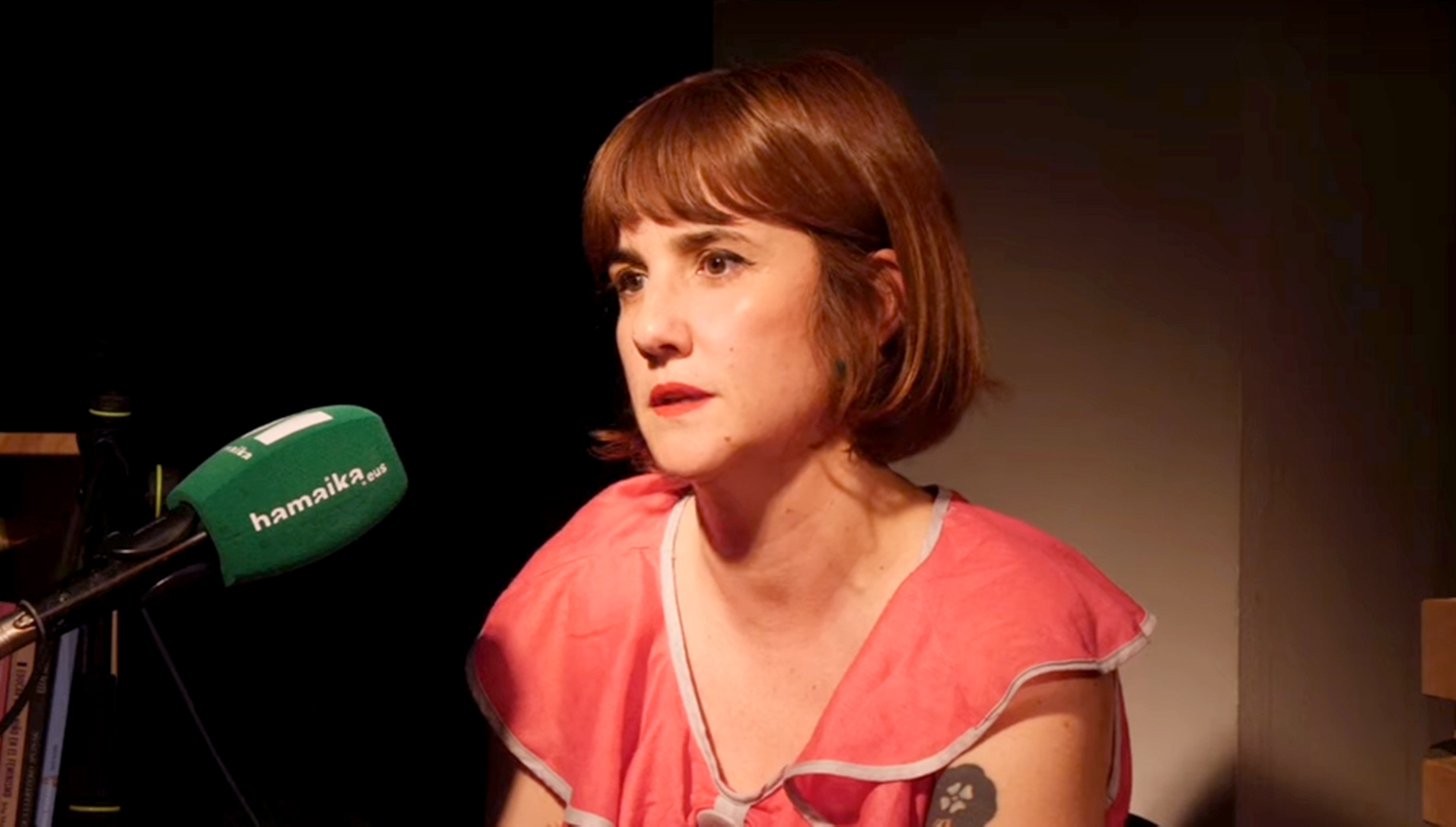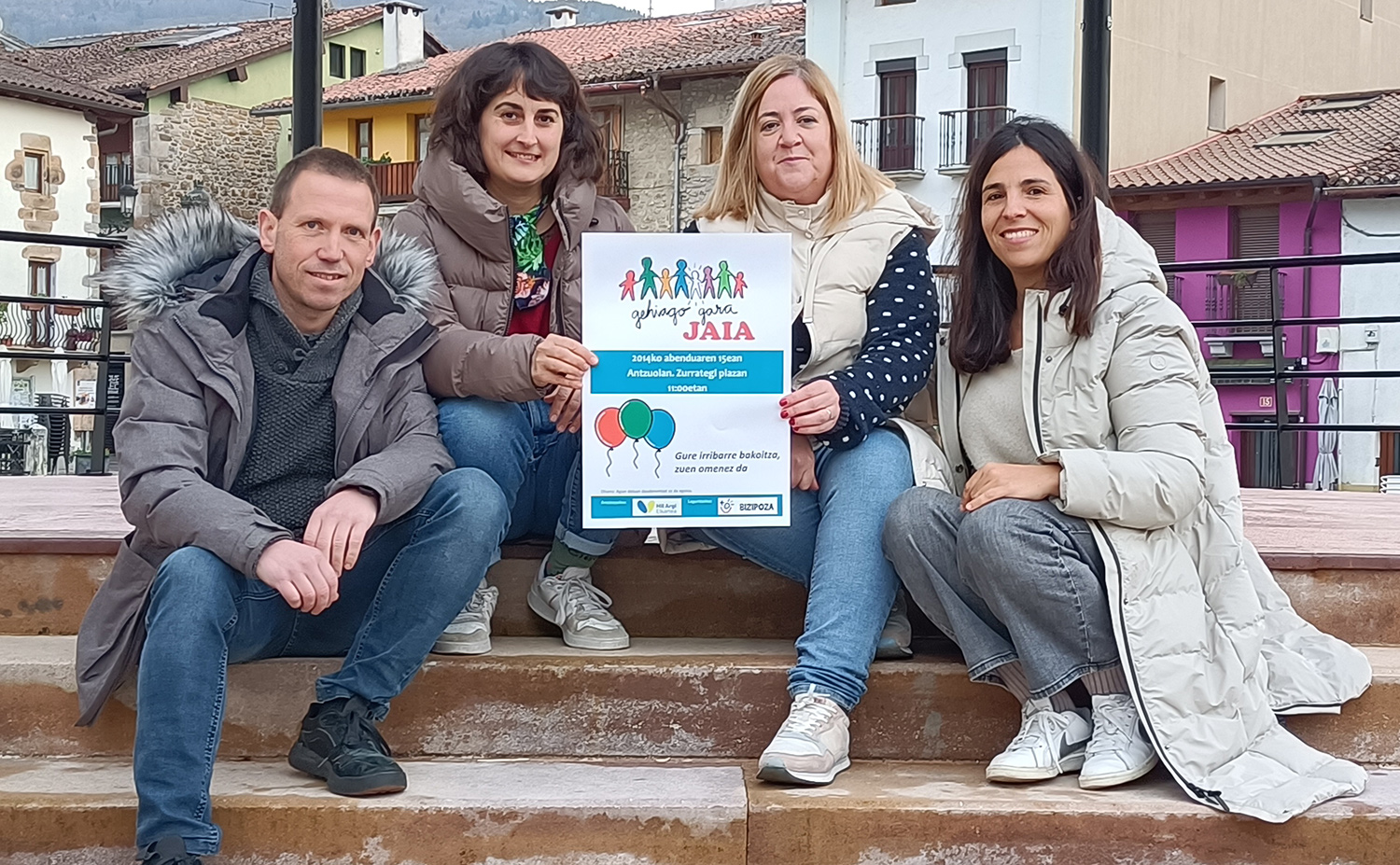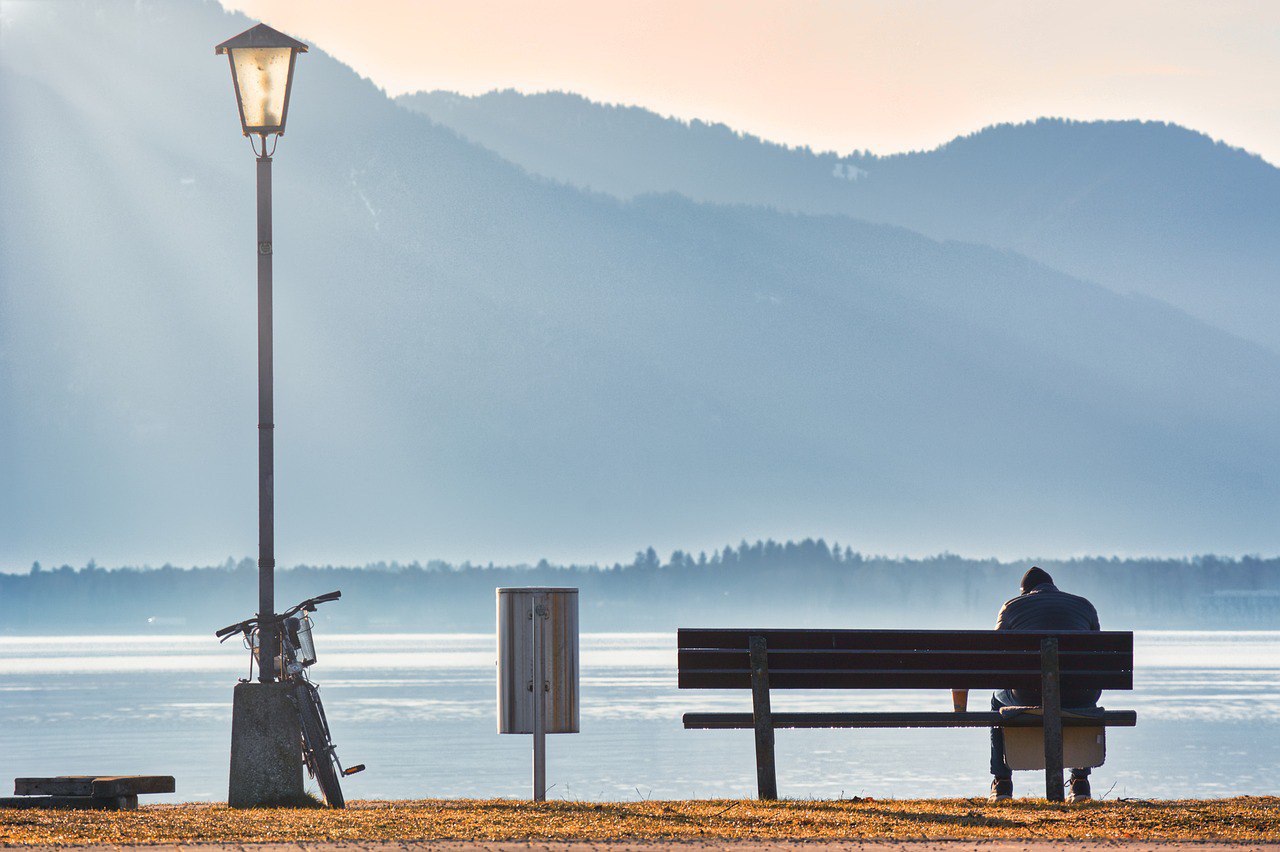When someone we love dies
- Death is a taboo, we often turn our backs on the same word, but we have it nearby, watching it when we least expect it. Death is the other side of life and the need to accept it is well known by many who have lived the death of their loved ones. Pulling that thread, Doctor Iñaki Peña has made the documentary 'About Death and Grief': Empty chairs.
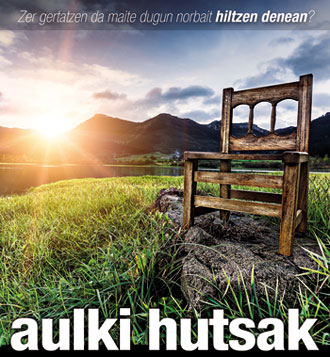
Iñaki Peña knows a lot about the issue, on the one hand for his profession, and on the other for the deaths in the family. For a long time he has been treating patients who breathe with the help of devices and, in recent years, has been in palliative care, with death as an eye witness. The injury caused by his father's death in 2007 has not been mitigated until now, when the Empty Chair gave birth.
It is a descriptive, educational and constructive documentary that has the testimonies of several professionals known to the Peña throughout his career and of friends who have known death close. He has long realized that death has no return and that we have to learn to live with it: “The first years that I started working as a doctor, death was a reality that from time to time I found, sometimes surprised us, many others was an inevitable prediction. I began to learn that it cannot always be cured, and in recent years I have gone from curing to calming to a great extent.” Precisely from this desire to mitigate is the tool that has been used to socialize the ups and downs of the years around death, the personal blog Osatzera a Arintzera. In this blog he has collected a lot of material and, with the intention of going further, the Empty Chair started to make audiovisual: “I wanted to bring together the experience and teachings of the experts and those who have lived near death, to offer something educating to the audience and to be, for some, a relief. I have to acknowledge that it has also been a way of rounding my personal grief.”
In order to do so, Peña has had to become a screenwriter and film director, and has had the help of the company Arteman Komunikazioa to carry it out. At Christmas 2012, he started shaping the idea and listed people who could be protagonists. Through them he has drawn the story.
Professional and personal opinions on grief
Under the subtitle “What happens when someone dies to whom you want?”, the work tries to analyze and explain with the help of several voices the process experienced within that natural but extreme fact. Reference doctors, psychologists and therapists in the health, associative and institutional area of the Basque Country describe in depth how close death affects us, the risks we can have and the process that underlies it, as well as, of course, the importance of working with grief and the possibility of moving forward. In addition to the experts in training and profession, there are also numerous citizens who have died their wife, newborn son, father, brother, severely ill daughter, grandfather or other close relatives or friends, who leave their testimony, showing very different, more vivid than formative manifestations. Likewise, to the extent that death is sculpted, two of the professionals who appear in the documentary also have personal experiences related to death. For the director, this is of great importance: “It’s an added value not only to speak as a professional but also to show our wounds, as the concept of ‘wounded healer’ is very interesting and a doctor and a psychologist have done so.”
He highlights the visibility of Peña's feelings and adds that this work has achieved the unusual in Euskal Herria: “I’ve been very lucky, first because all these protagonists of the documentary have met in my life, but also because they have stripped their soul before the cameras, even more so in our country, and in Basque… It’s an amazing luxury.” One of the most important keys of the documentary is to count on reference collaborators who currently work in this professional field in the Basque
Country. But Peña also wanted to value those who, after working the grief without being professional, have started to help others; for example, the blog that offers help on perinatal death guretxikixak.org or the person who has decided to volunteer at the Cancer Association after his father's death.
The audiovisual sector is divided into four main sections (plus one): Pain, Anger, Perfect Days and Hope “In the first, we start with concepts and work hard on the key to grief, pain. The second concerns a common response from our society, indignation; we conceal sadness, weakness and crying and show indignation. In the Perfect Days section we say that Christmas, birthdays, Saints… can be the right time to remember and honor those we love, but many times they lead us to a great burden. We have also shown that there is hope. And finally, the epilogue also offers us some surprise.”
Contrary to the cultural prejudices we have on this subject, on the few occasions when the documentary has been offered in public so far, viewers have recognised that Aulkk retains a prominent place for optimism and hope. “We had the opportunity to bring to the screen other experiences, to interview people chained in mourning, who are in a dark depression, in a tunnel, or who are in a moment of rage. But it wasn't my intention. He preferred to show that you can move forward and live by relieving the pain and emptiness generated by death,” explains the doctor.
In fact, Iñaki Peña would like this work to be disseminated as widely as possible and its main objective is dissemination. If anyone serves to understand what they have lived, to strengthen them, to feel positive, to help the next one, they will be happy, even if they help their colleagues, other professionals.
Basque character
Although this is a very specific issue, one of the strongest intentions of the Peña has been to guarantee the Basque character of the documentary: “We want to show this work also outside Euskal Herria. Our experiences will be the same or similar here or in Kuala Lumpur, but the ones we've appeared in this work are us, and our landscapes and our music. In addition, we opened a small window to India and another to the United States of America.”
Most of the people interviewed have been in Basque, although there are also people who have used Spanish and English. Each chapter of the documentary is linked to a song and all of them are Basque musicians of today that depart a little from the traditional patterns. “The Empty Chair is also a cry for five singers of our generation, regardless of the classics. For many it will be a discovery, although we are very well known in very specific environments. By the way, we have shown that languages are not an obstacle, unless you want them to be so.”
To avoid difficulties in the dissemination of the documentary, subtitles have been made in Basque, Spanish and Catalan. After their première in the Reveroia Kafe Antzokia of Elgeta, they have started to act as people in town, first in the municipalities of the protagonists. In addition, Arinduz was projected in the days of the Basque Palliative Care Association in Bilbao; in April it will also be at the congress of the Basque Institute of Euskaldunization of Health in Donostia-San Sebastián; they are at the door of its diffusion outside the Basque Country and it has also been approved for a film festival. They are also preparing a workshop for the UPV/EHU.
Despite the difficulties encountered along the way, the project’s promoter is very pleased with the reception that the audiovisual sector is receiving: “It’s a work done with illusion, energy and heart. Otherwise, if in these times of crisis I only behaved with my head, I would stay at home without doing anything, because one of the biggest difficulties has been getting funding. In each of the actions we have performed, we are receiving new feedback, it is really satisfactory.”
In conclusion, Iñaki Peña once again stressed the importance of talking about death: “It’s an issue that affects us all, in the future our children are also going to go through this process for us. If we are aware it is easier, although sometimes it is difficult to accept your own death, right?”
Soco Lizarraga mediku eta Nafarroako Duintasunez Hiltzeko Eskubidea elkarteko kidearen ustez bizi testamentuak heriotza duin bat eskaini eta familiari gauzak errazten dizkio.
Gertakariak igande egunsentian suertatu dira 5:00ak aldera Gasteizeko Mitika diskotekan. Hildako pertsona 31 urteko gizon bat da, eta lurraren kontra buruarekin hartutako kolpe baten ondorioz hil da, antza atezainak kolpe bat eman ostean.
These were my last words when we left, held hand in your deep breathing sleep. Your heart stayed forever without a special, simple, dignified pain. As you want and demand. How we want and respect.
Already a month before the arrival of winter, the last days of the longest night,... [+]
First of all, we wish to extend our condolences to the family and friends of the woman killed in early August.
The people of Gaintxurizketa are fed up with the disillusionment of the administration and those responsible.
Those of us who live in the neighborhood are forced to... [+]
Paris 1845. The Labortan economist and politician Frédéric Bastiat (1801-1850) wrote the satire Pétition des fabricants de chandelles (The Request of the Sailing). Fiercely opposed to protectionism, he ironistically stated that the sailing boats asked for protection against... [+]









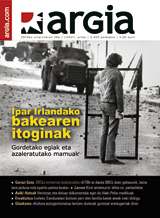


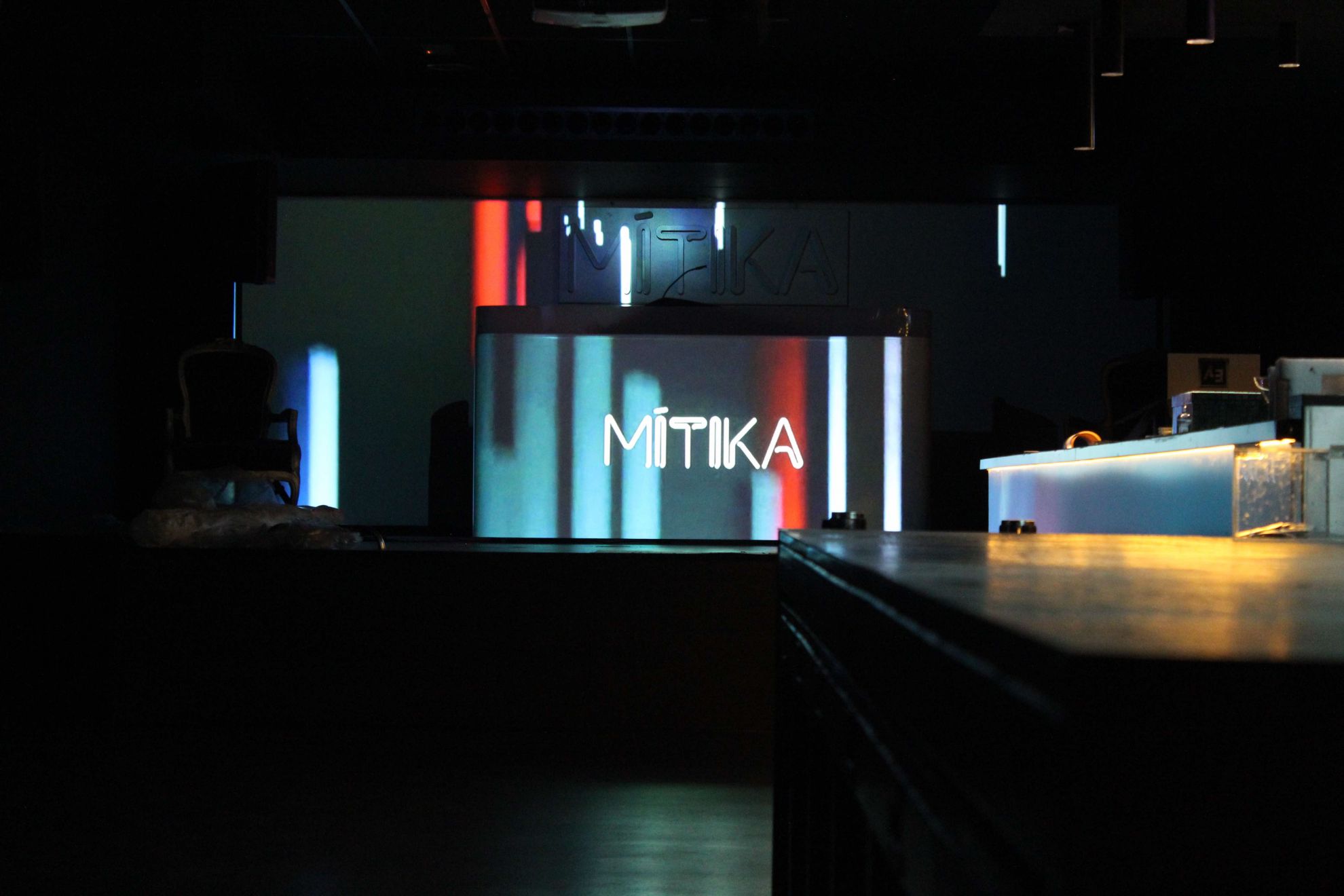
.jpg)
